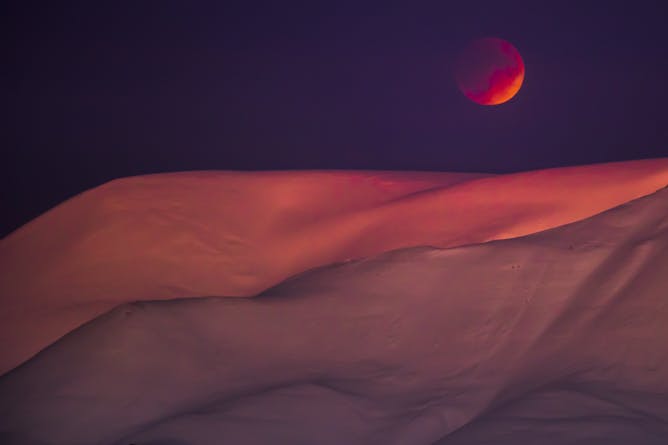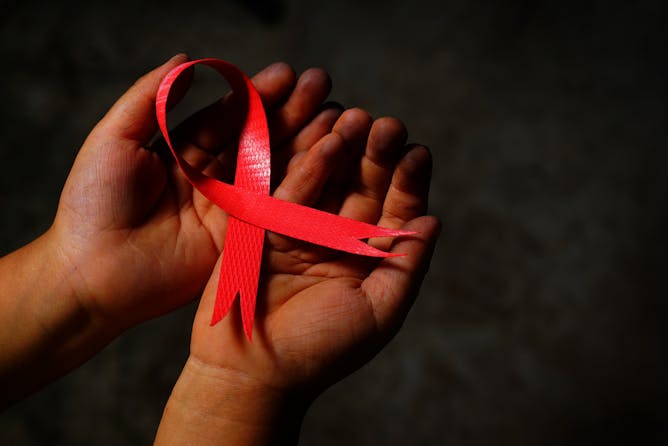|
The next 24 hours will be special for millions of people in Africa, Australia, Asia, Europe, and South America as the sky offers up some special treats. The first is a full lunar eclipse. Though not rare, this will be the longest this century – a full 1 hour and 43 minutes. They normally don’t last more than an hour and the next one this long won’t be coming round for another 100 years. The moon will also be spectacularly red. To top it all, Mars will be looking fairly spectacular too. Daniel Cunnama explains it all.
Research has shown that it’s beneficial for children with HIV to start treatment as early as possible. But, until now, nobody’s looked at the impact on the cohort of children who were born at the turn of the century and started ARV treatment over the next 10 years. Mary-Ann Davies and Amy Slogrove discuss what their research has uncovered.
|

A super blue blood moon is seen from Svalbard, Norway earlier this year.
EPA-EFE/Heiko Junge
Daniel Cunnama, South African Astronomical Observatory
The longest lunar eclipse this century, and other special features such as Mars looking spectacular will be seen.
|

Shutterstock
Mary-Ann Davies, University of Cape Town; Amy Slogrove, Stellenbosch University
The first global comparison of adolescents that acquired HIV as newborns highlights the challenges around treatment.
|
Politics + Society
|
-
Gift Mwonzora, Rhodes University
It's the final lap before Zimbabwe's first election since the fall of Robert Mugabe. The jury is out on who will win the presidency.
|
|
Arts + Culture
|
-
Raymond Suttner, University of Johannesburg
Photographs tell the story of Nelson Mandela the humanist and take us into the settings that shaped his childhood.
|
|
Business + Economy
|
-
Olabisi D. Akinkugbe, Dalhousie University
The African Continental Free Trade Agreement promises to redefine relations among African states and beyond.
|
|
From our international editions
|
-
Jonti Horner, University of Southern Queensland
Researchers have found evidence of a large lake of salty water, buried 1.5 kilometres beneath the southern polar ice cap on Mars. So what does that mean for life on the red planet?
-
Adrian Pinder, Bournemouth University
India's hump-backed mahseer is one of the world's most prized game fish, yet it was a scientific enigma.
-
Daniel Brown, Nottingham Trent University
The blood moon myths are many and varied, but, at the end of the day, it's just an eclipse.
-
Vincent Joos, Florida State University
After weeks of protest in Haiti, sparked by a sudden rise in fuel prices, at least seven are dead and the prime minister is out. Foreign creditors pushed for the price hike as an austerity measure.
|
|